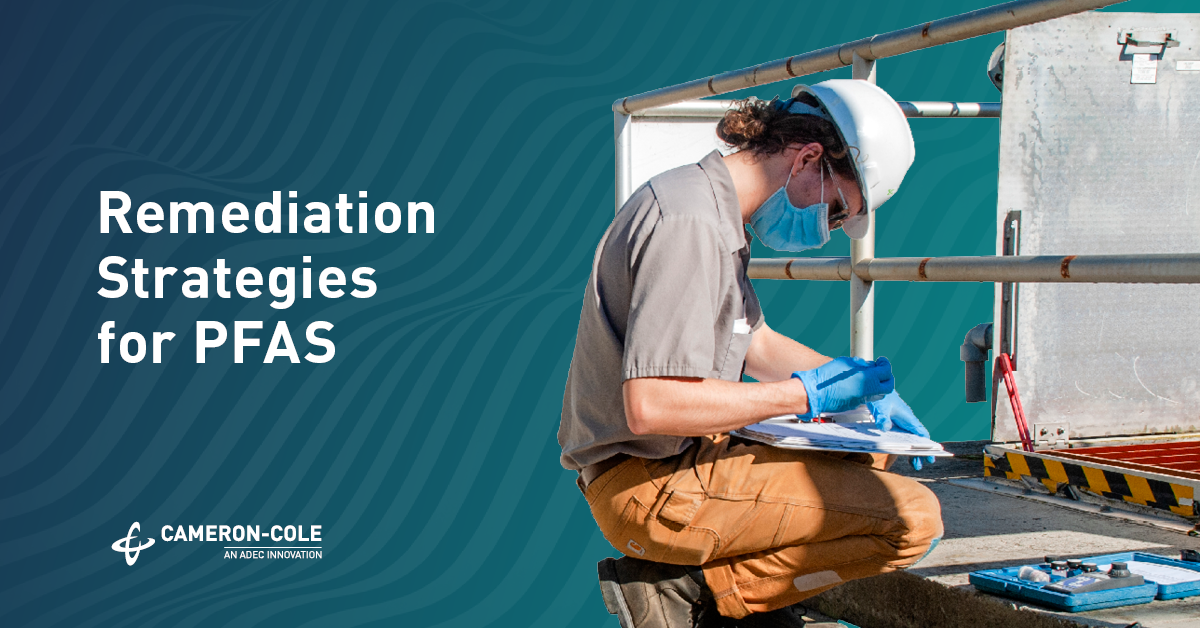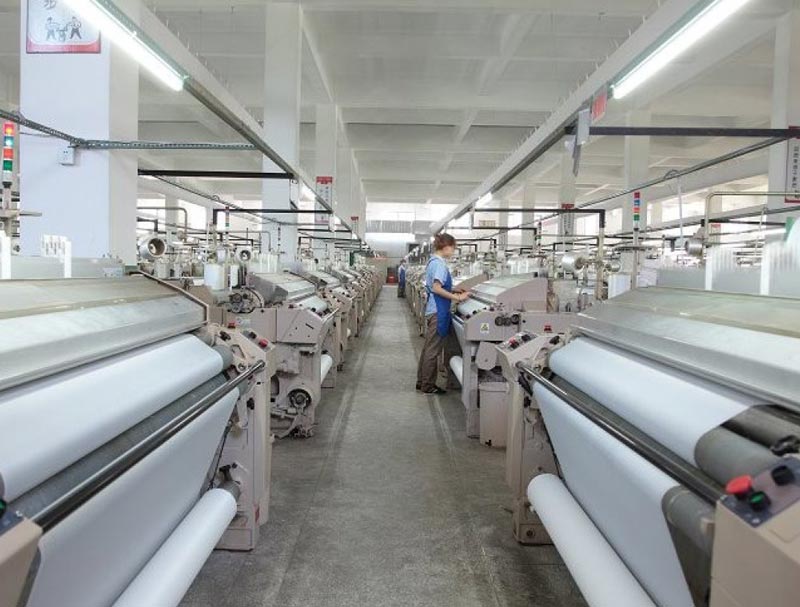Remediation Strategies for PFAS
Article
The goal of any remediation effort is to remove contaminants from a site, whether in the soil, groundwater, sediment, or surface water.
The goal of any remediation effort is to remove contaminants from a site, whether in the soil, groundwater, sediment, or surface water. When dealing with per-and polyfluoroalkyl substances (PFAS), their resistance to breaking down requires unique remediation strategies.
The regulatory landscape surrounding PFAS is constantly evolving and has created uncertainty with regard to what concentration limits will apply to a particular remediation effort. The Environmental Protection Agency (EPA) has announced health advisory levels for PFAS as low as 4 parts-per-quadrillion, and more recently has proposed a maximum contaminant level of 4 parts-per-trillion for select PFAS compounds.
Individual states are also setting state-specific PFAS target levels. One thing seems certain: PFAS contamination limits in water are going to be in the lower parts-per-trillion range, which will require increased consideration for the treatment for PFAS in any site cleanup effort.
Treatment Options
PFAS are extremely persistent compounds that are resistant to degradation in the environment. Remediation technologies for treatment of PFAS have thus far been limited largely to filtration approaches that physically separate the PFAS constituents from a water stream. In soil, this process is typically proceeded by some form of soil washing to transfer the PFAS into the aqueous phase. The three most common filtration technologies for PFAS are described below.
Granular Activated Carbon
When dealing with PFAS contamination in the water supply, a standard practice for removal is adsorption onto granular activated carbon (GAC). Activated carbon is made from organic materials with high carbon contents such as wood, lignite, and coal, and it is effective in removing PFAS from drinking water when used in a flow-through filter mode. However, water treatment using GAC transfers the PFAS from the water onto the carbon, creating a new waste stream that requires disposal.
Ion Exchange (IX) Resin
IX resins are widely used to treat PFAS in water. IX is the reversible interchange of ions between a solid and a liquid. This treatment is most effective with short-chain PFAS which are not removed effectively by GAC. IX resins can be regenerated and re-used, however PFAS separated from the water with an IX resin will require subsequent disposal or destruction.
Reverse Osmosis
Reverse osmosis is a high-pressure membrane technology that rejects all salt to a high degree due to tight membrane permeability. Research has shown that reverse osmosis is typically more than 90 percent effective at removing a wide range of PFAS. In this approach, approximately 80 percent of the water coming into the membrane (the feed water) passes through to the treated water, and the remaining 20 percent is retained as a high-strength concentrated waste. The brine generated from reverse osmosis requires subsequent disposal or destruction.
These three remediation approaches have a few things in common:
- They are performed ex-situ, requiring energy-intensive solutions to bring the PFAS from the ground to the treatment unit.
- They are non-destructive, meaning additional treatment or disposal of concentrated PFAS waste will be required.
- They require that the influent stream be relatively free of non-PFAS compounds to prevent fouling of the filter medium, often necessitating multiple, sequential treatment steps.
Numerous additional technologies are currently being developed in both bench and pilot scale applications. In situ approaches using colloidal carbon injected into aquifer systems has shown some effectiveness at sequestering PFAS in situ. It is unknown whether this approach will yield long term sequestration. Thermal technologies by which a soil column is heated to high temperature to separate PFAS from soil and subsequently extract PFAS in soil vapor have shown some promise. While both fungal and bacterial strains capable of breaking down PFAS have been identified, there is a lack of complete knowledge of the mechanics of biological PFAS destruction.
Evaluating and Treating PFAS Contamination
Working with a third-party consultant on a remediation plan is beneficial for many reasons, one of which is the confidence of a well-planned strategy. Below is a list of steps you can expect when working with an environmental team to evaluate and mitigate PFAS contamination.
Step One: Preliminary Evaluation
Consultants will first define the level of PFAS risk in the area, sphere, or boundary of the project’s influence or responsibility. This starts with identifying involved stakeholders and resources, followed by reviewing geographic information and data sets to identify suspected PFAS sources. Programs like RiskFacts are useful in enhancing the screening process for land uses, events, regulatory information, or potential PFAS-generating activities.
Step Two: Risk Characterization
Upon discovery of a potential PFAS source, identification of potential receptors (e.g., residential water user) and exposure pathways (e.g., ingestion of drinking water) becomes critically important. Sample collection allows potential risks to receptors to be quantified and mitigation or remediation strategies to be developed if necessary.
Step Three: Risk Reduction
Risk reduction involves developing actions in response to unacceptable risks identified in Step 2. Risk reduction for a PFAS-impacted water source may involve shutting down affected wells, performing well-head treatment for PFAS, or identifying alternate water sources.
Step Four: Identify Funding Support and Sources
Consultants may conduct a Potentially Responsible Party (PRP) search to identify source parties that may have financial culpability regarding the site contamination. Federal, state, and local PFAS remediation funding sources may also be identified and explored.
Mitigation and Remediation Strategy and Implementation
Working as a team, you and your consultant will design mitigation or remediation response approaches—including the strategies mentioned above—to reduce long-term risk to acceptable levels. These actions can then be implemented, while engaging regulatory and other stakeholder groups as necessary.
Remediation Strategy with Experienced Consultants
Multidisciplinary teams like Cameron-Cole have substantial experience in the PFAS remediation and mitigation landscape, providing regulatory and technical consulting services for airports and other facilities, utilizing expertise in assessment, remediation, and monitoring (ARM) services, and more.
Important PFAS expertise and services also include:
- Model containment fate and transport
- Plaintiff fact sheet preparation
- Regulatory request responses
- Preliminary risk evaluation
- Potential source contamination evaluation
- Remedial option recommendations
- Treatment plan development
Your approach for addressing potential PFAS contamination will require a unique remediation strategy, as well as the experience and knowledge to implement the plan successfully. It is crucial to consult with experts to gain a 360-degree view of your situation and options.
Cameron-Cole, an ADEC Innovation, specializes in assisting our clients with complex environmental liabilities. We provide technical support to clients addressing regulatory response and litigating against the manufacturers of PFAS. Contact us for a free consultation to discuss your current and potential future obligations and how to prepare for the response to the latest PFAS regulations.










